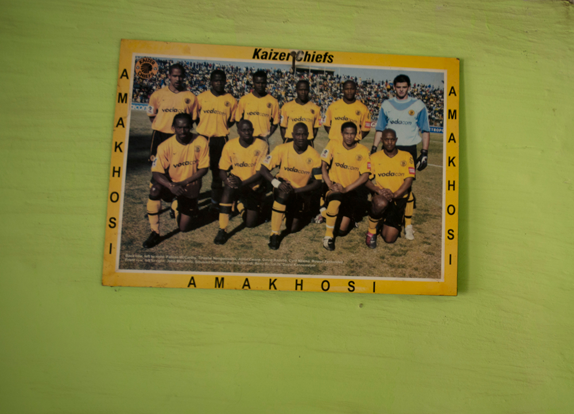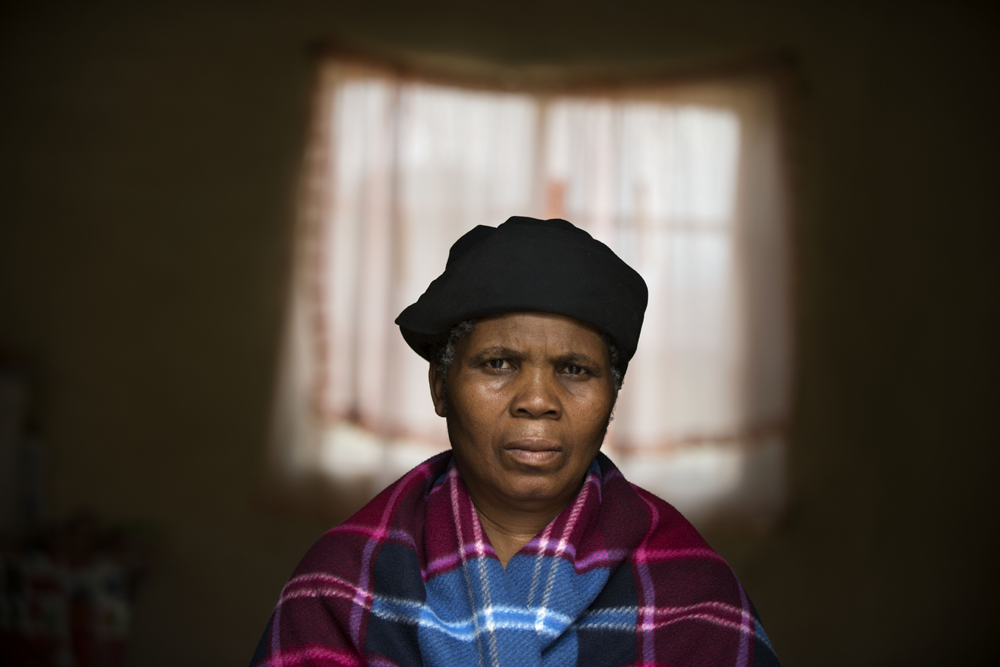JULIUS MANCOTYWA
LADY GREY, FREE STATE

The R392 between Lady Grey and Sterkspruit bears the apocalyptic scars of dissent: every few kilometres the tar is blackened by rows of burning tyres, and stones, rocks and other detritus of protest litter the way.

En route to the Mancotywa home near the border between South Africa and Lesotho, a policewoman says of the February 2013 protests to move the municipality from Lady Grey to Sterkspruit: “We have our own Marikana here … Be careful of the stones on the road.”
Nowellington Mancotywa misses her husband, Julius Tokoti Mancotywa, dearly.
She misses the twice-yearly visits he made home from the mines, especially around Christmas when he brought meat, presents and clothes for her and their eight children. Nowellington yearns for him to be pottering around the house again, or painting, or planting in the garden.
She feels the loss of the discipline he brought to his children to do chores and contribute meaningfully to the household: “A man has that road to his sons,” she says.
“When my sons refused to bring home the cattle or sheep I would threaten them by saying I would report to their father. Now I have no threats left.”
She feels her children have become listless and aimless since their father’s death – especially because of its violent manner.
“My husband didn’t think he was in danger. He was a religious man, a very sweet man, and he never caused havoc. I think he was in the wrong place at the wrong time,” says Nowellington of the massacre that claimed her husband.
She suspects his absence contributed to the death of her eldest son, Mandisi, who was buried in February. He had been murdered by a friend in a local shebeen in a dispute over a cellphone.
“I don’t believe the murderer will stay long in jail”, she says. “That is how it is in this country. I feel like I could kill him with my own hands if I see him.”
Death stalks Marikana families. Nowellington wears that shell-shocked look that is murder’s gift to surviving loved ones. Her family says she rarely eats and throws up constantly, as if in disgust with the world.
In the kitchen of Nowellington’s two-room house there is a “Be my Valentine” frame from her husband, and a Kaizer Chiefs poster.

Julius liked to watch the local teams play football at a nearby ground when he was at home. He was also “Amakhosi for Life” and some of the happiest memories Nowellington has were when Chiefs played Mamelodi Sundowns.
Her murdered son Mandisi was a Sundowns fan and the rivalry between father and son was intense.

Leave a Reply
You must be logged in to post a comment.